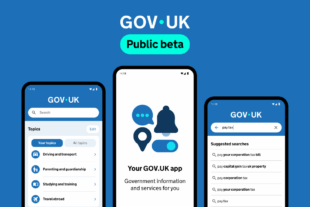The Charity Commission recently joined GOV.UK. Prior to that move, Sam Brierley, Head of Digital Content, centralised publishing. This move reduced costs and printed pages and improved content on the website. Here’s his story.
Back in 2009, I moved the Commission from a print publishing operation (costing over £500,000 a year) to web-only. But there was no control over what was published online and I inherited an essentially decentralised model for our web publishing. Some teams could publish on the website, but we also had 2 people publishing whatever anyone in the Commission sent them.
The website was huge - about 3,500 pages, most of which were never viewed. Over 500 were FAQs – nearly all of which were ‘fondly anticipated questions’ rather than actual answers to common problems. Call, email and post volumes were high.
So I started by setting out the need for change. I looked at phone, email and post traffic. Much of this was clearly avoidable contact because the information was available online. And if the info was there, why did people still call us?
We commissioned some research to answer this. We found that most people thought our guidance was ‘very good’ (about 85%) but when we asked ‘did you understand it?’ or ‘did you get the answer you needed?’ many respondents said ‘no…' They basically said ‘it’s obviously really comprehensive – but I don’t understand a word because I’m a bear of little brain’.
When we looked at the user journeys, we also found that people weren’t getting all the answers they needed to complete a specific task from one piece of guidance. Often one piece of information needed for a task would be buried in lengthy guidance. The average user wouldn’t know this info was needed, let alone where to find it.
Unsurprisingly, many people simply didn’t bother to do the detective work - they picked up the phone instead. Even if users found the information and pieced it together, they’d often ring to confirm they’d got it right.
I thought we could reduce this type of contact by providing task-focused guidance that brought together the 20% of information that 80% of people would need to complete a given task. People who needed more detail would be directed to the comprehensive subject guidance.
This approach was agreed and led to the question of who would write the new guidance. Should it be subject matter experts or specialists in writing for web? To answer this, I evaluated the pros and cons of the 2 digital publishing models.
I found a decentralised model couldn’t give us the consistency, quality and maintenance of content we wanted. It had:
- resulted in a website that had become unmanageable, unstructured and out-of-date
- increased avoidable contacts by making it hard for users to get all the information they needed
Conversely, it was clear that a centralised content team would be able to ‘curate’ our online content to meet our new agreed style and content guidelines. It could also represent the voice of the user and balance their needs with those of the organisation.
Our digital content team was set up in 2012 and now writes all task-focused guides and corporate content. Our digital team has overall control of Charity Commission content on GOV.UK and tries to set a consistent tone across the site. We now have a smaller, streamlined and better focused web presence.
Before we centralised the digital team, we had 12 call centre staff giving advice over the phone. We now have 3 digital content editors making sure our users find what they need online - freeing up those 12 to take on more in-depth casework. And subject matter experts aren’t asked to put their everyday work aside to write web content.
We now get 14% fewer calls since our task-focused content went live. Interestingly, we’ve also seen an increase of up to 30% in traffic to some detailed subject guidance. So I can honestly say that we’re opening up, not dumbing down.
 The GOV.UK app went live in public beta in July 2025. Find out what’s been happening, and what’s coming next,
The GOV.UK app went live in public beta in July 2025. Find out what’s been happening, and what’s coming next,
2 comments
Comment by Jared posted on
Great post. Thanks. The fact that you're sharing this stuff makes it so much easier for us here in New Zealand to learn from what you're doing.
I'm interested in how your team is structured and workflow in relation to GDS overall. Are your 3 digital content editors dedicated soley for Charity Commission content on GOV.UK? Or are they part of the larger GDS content team, working on other content as well? Also, does the content those 3 editors produce still go through a central QA process from the GDS team before appearing on GOV.UK?
Comment by Sam Brierley posted on
Hi Jared, glad you found it useful.
My content editors only work on Charity Commission content; they're commission employees not GDS staffers.
We've our own internal QA process modelled on the GDS one - everything gets second-eyed by another editor and fact-checked by a commission subject matter expert and/or lawyer if necessary.
GDS content designers occasionally do spot checks on our published content - this has been really helpful in picking up 'style creep'.